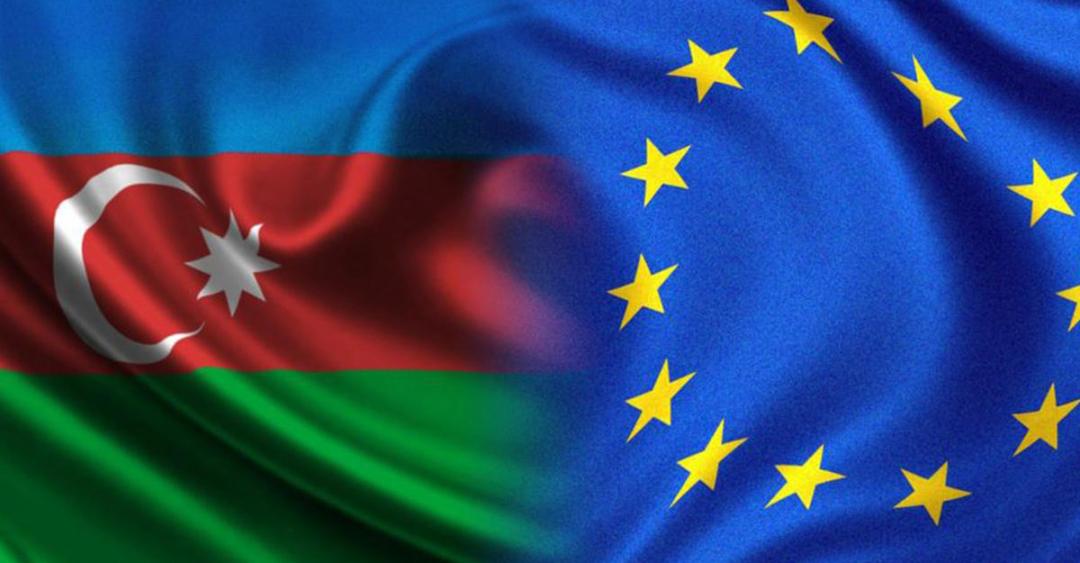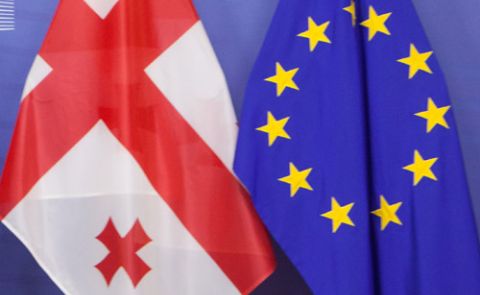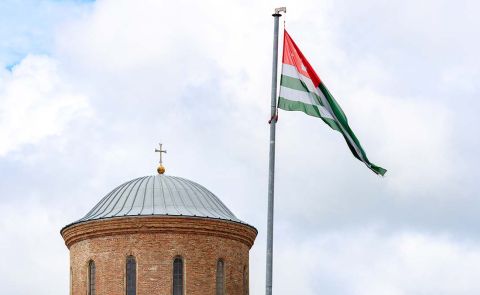
EU-Azerbaijan deal in risk of a collapse

The negotiations for the new partnership agreement between the European Union and Azerbaijan, planned to be signed in 2019, came to a stall as both sides expressed their concerns in regard to certain issue areas, reported azerdaily on 10 August.
In any case, Denis Daniilidis, Adviser to the EU Delegation to Azerbaijan, does not hide the fact that negotiations on trade issues are indeed very difficult. “But I would not say that they don't move forward at all. Negotiations are ongoing, but there are difficult issues that the parties are discussing now,” he said. He had difficultly stating the specific dates for signing the agreement but expressed confidence that the parties could come to an agreement.
One of the conditions put forward by the European Union to Azerbaijan is the timing of the country's accession to the WTO, which must be specifically indicated. It must be stated that the EU required membership in the trade organisation even before agreements were signed with the other countries of the Eastern Partnership (Ukraine, Moldova, Georgia). The EU decided to make an exception for Azerbaijan. However, the Azerbaijani government must present a 'road map' of measures of compliance with the organisation's requirements and indicate the terms of entry into the organization
The EU and Azerbaijan are also not able to agree on the Open Skies agreement, which according to European sources, is also delayed by Baku. The agreement foresees the creation of a common aviation area between the EU and Azerbaijan. It has two important aspects: 1) market opening and liberalization in aviation relations between the two entities and 2) regulatory harmonisation of aviation safety, aviation security, environmental protection and the application of competition law for the Azeri airports.
Baku also complained about the EU stances on certain issue areas. First of all, the ambiguous position of the EU on the Nagorno-Karabakh conflict. Despite support for the territorial integrity of Azerbaijan, the draft agreement does not specifically note that Nagorno-Karabakh is an integral part of the republic.
The positions of the parties also differ on visa issues. Brussels expects Azerbaijan to unilaterally abolish the visa regime for EU citizens. So far, in addition to Azerbaijan, only the Russian Federation, Tajikistan and Turkmenistan retain the visa regime for citizens from EU countries. Thus, Baku insists on the principles of reciprocity, and the EU proposes to first cancel them only for entry into Azerbaijan, as was the case with other republics of the former USSR, and only then the issue of free entry for Azerbaijani citizens to Europe will be considered. However, Baku believes that visa procedures for EU citizens are already significantly liberalised - they can get permission to enter via the electronic system within three days, or even three hours for an additional fee.
Another stepping stone to the negotiation process is the new composition of the European Commission, which will begin in October. It will take some time for the new people to determine the EU's foreign policy and its approaches to the Eastern Partnership to get into the loop and form their own teams.
On 28 August, an inside source from the European Commission unveiled to Euroactiv the current state of negotiations. The source stated that Baku reportedly blames the EU’s short-sightedness, while stressing its undoubtedly important stabilising role in the region, as well as its contribution to the energy security in the EU. The Southern Gas Corridor is the only tangible project to bring pipeline gas from the East from a source other than Russia. Azerbaijan also feels offended that the EU was able to conclude a new generation of agreements with countries that Baku sees as having less geostrategic importance and which maintain closer relations with Russia, such as Armenia.
Conversely, the EU regrets the lack of understanding by Azerbaijan that a new agreement must necessarily include a strong economic chapter. The country is not a World Trade Organisation member and, as seen by Brussels, does not have a serious ambition to join it. This reportedly makes it much more difficult to advance on the trade chapter. The source said that Baku found it difficult to move forward each time that the EU executive made mention of the rules of an open market economy. Another hindering obstacle in the eyes of the EU is that Azerbaijan failed to diversify its economy. Azerbaijan’s economy is heavily based on oil and gas. “Everything which is not hydrocarbons is very under-developed”, the source said and explained that part of the difficulty was that “some of the country’s ministers were more interested than others” in reaching an agreement with the EU.
The Azerbaijani information agency Turan published an article where further stepping stones for the new EU-Azerbaijan deal negotiation process were revealed. According to the article, Azerbaijani civil society development and small- and medium sized enterprise growth (SME’s) within the Eastern Partnership Programme (EPP) was not deemed sufficient for EU standards. Program-involved members stressed episodic successes of civil society within the framework of cooperation with the EU. However, no stable cooperation was established due to EU institutions refusal for a long-lasting collaboration because of Azerbaijan’s negative record on issues such as democracy and human rights. The development of SME’s in Azerbaijan is another problematic area, as Azerbaijan has the lowest score amongst the Eastern Partnership countries. Under the current roadmap, the share of small- and medium-sized enterprises in Azerbaijan GDP should reach 15% in 2020 and 35% in 2025 - 35%. SME’s constitute the basis of the European economy, 99% of the businesses in the EU and two thirds of employment in the private sector fall on their share.
The source inside the Commission is still hopeful that a deal between the EU and Azerbaijan is still possible during the Jean Claude Juncker chairmanship (until 1 November). “It’s doable: a few sleepless nights and we can have it,” he/she said.
Kestustis Jankauskas, EU ambassador to Azerbaijan, expressed his optimism on 3 May that the agreement would soon be signed between the two parties (Caucasus Watch reported). Conversely, if the current trend continues, the agreement could be postponed indefinitely or even be reverted to just cover the energy partnership between the EU and Azerbaijan as it was originally intended by Baku.
See Also


BP Strengthens Presence in Azerbaijan’s Offshore Energy Sector

Netanyahu’s Letter to Aliyev: Mutual Trust, Solidarity Following Hamas Attacks, Facilitating Dialogue Between Israel and Türkiye

Azerbaijan Expands JF-17 Thunder Fighter Jet Order from 16 to 40 Units

EU Commissioner and NATO PA Warn Georgia Over Democratic Decline Amid Accession Challenges

